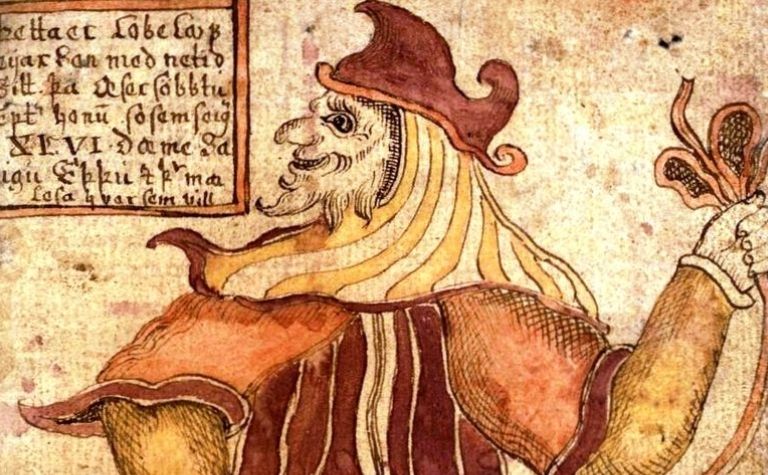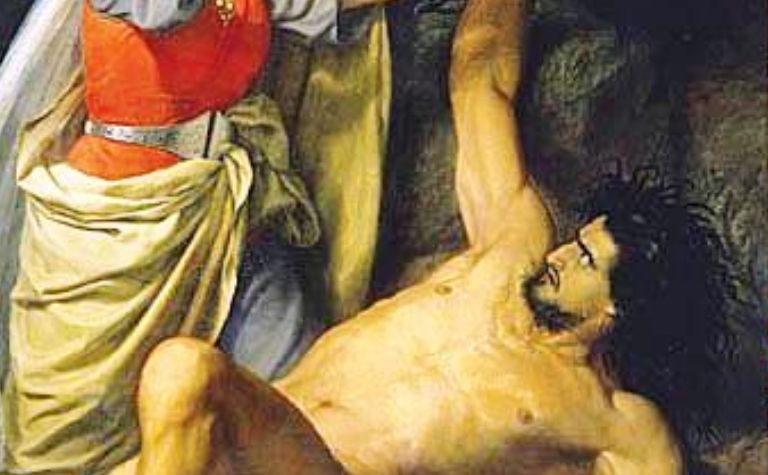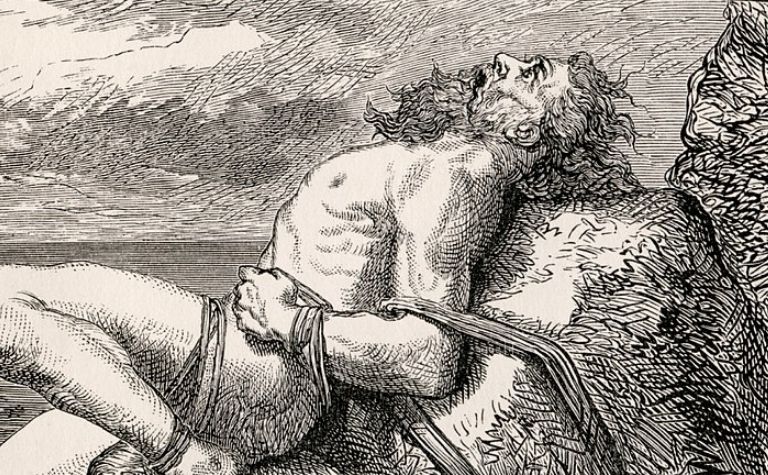There are numerous depictions of Loki in Norse mythology and in the Marvel Cinematic Universe (MCU).
Sometimes the MCU accurately reflects Norse mythology, but other times it takes significant artistic license. One question that many people have about Loki concerns how he became a god.
Loki became a god because his maternal lineage, which is the subject of debate, may have made him a god from birth.
Other theories suggest that his friendship or brotherhood with Odin — in addition to his powers (both natural and learned from Frigga) — may have earned him his status as a god.
What Is Loki the God Of? What Powers Does Loki Have? Was Loki a Good God or an Evil God? What are Loki’s origins? Keep reading to learn the answers to these questions and others.
Also, see Who Are Loki’s Children in Norse Mythology? to learn more.

Did Loki come from gods or giants?
Norse texts confirm that Loki’s origin can be traced to a Jotün (i.e., a giant) father, Fárbauti.
The origins of his mother Laufey (also called “Nal”) is a contentious topic as some texts argue that she was a giantess, while others say she was a goddess.
Other groups suggest she might be neither.
The debated origin of Loki’s parentage is one of the reasons why there’s no universal agreement on how he became a god.
Some historians believe that the Jotüns had some magical powers, such as shape-shifting and illusions.
Others suggest that he got all or some of his magical powers after Frigga, Odin’s wife, mentored him for a time.
Most Norse texts agree that Loki had a relationship with Odin and that he was always in the presence of other gods, often helping them out of bad situations, some of which he may have created himself.
If Loki wasn’t originally a god, how did he become a frequent presence around other gods? How did he attract the attention of Odin’s wife? He surely wasn’t the only Jotün with magical powers.
These questions remain unanswered by existing texts, but some people observe that Loki is one of only three gods mentioned in multiple Norse myths alongside Odin and Thor.
This leads some Norse historians to believe that Loki must have been a god from birth to justify that position.
Also, see How Did Loki Betray the Gods in Norse Mythology? to learn more.

What Is Loki the God Of?
Loki is mostly known as the god of mischief. However, there are some references that describe him as the god of Chaos or Temptation.
Some people refer to him as a god of fire, but this is due to confusion with another similarly-named Norse god, Logi. Logi is the god of fire in Norse mythology.
The majority of texts on Norse mythology agree that Loki is a trickster god or the god of mischief.
He’s known to help other gods on occasions but his reputation is mostly built upon causing mischief and chaos.
What Powers Does Loki Have?
Contrary to some modern depictions, Loki’s main powers were shape-shifting, wit, and tricks.
He rarely got involved in physical combat, which is why he didn’t carry weapons like other Norse gods that possessed similar stature.
No Norse literary sources describe any specialized garments, vehicles, or charms belonging to Loki.
The Skáldskaparmál mentioned that he has magical shoes that allowed him to run over water, but there’s been no corroboration of that claim anywhere else.
Whenever Loki needed a magical weapon, he’d borrow it from other gods.
For example, he borrowed Freya’s magical cloak once to turn into a falcon. He also helped other gods to borrow accouterments when necessary.
As stated above, shape-shifting was his main power, and he used it multiple times.
Several texts recount that he took the form of a flea, a fly, a mare, a salmon, and other animals.
He also took the form of a human, as documented by his transformation into an old woman known as Thökk, who refused to weep after the death of Baldr.
Loki is also mentioned in connection with flight, wind, and air in some texts.
Also, see Did Loki Give Birth to Animals in Norse Mythology? to learn more.

Was Loki a Good God or an Evil God?
Loki was not a good or evil god. Many Norse texts reveal that he participated in many evil and good acts.
Some of his recorded acts suggest that he can be good or evil for selfish reasons.
A common theme of Norse myths about Loki is that he often has malicious intentions and can also help solve the problems he helped create. Let’s take a closer look at some examples of Loki’s acts.
The Death of Baldr
This is one of Loki’s worst acts as a god.
Baldr’s mother made him invulnerable by making all things swear not to harm him. However, she didn’t include the mistletoe in the treaty.
Loki discovered this and tricked the blind god Hodr into shooting an arrow made of mistletoe at Baldr during the party to commemorate Baldr’s supposed invincibility.
Hodr unintentionally kills Baldr, and this act led to a chain of events that culminates in Ragnarök.
The Blasphemies
The Poetic Edda contains the Lokasenna, a poem showing how Loki went on an insult spree at a gathering of the gods.
It highlighted how Loki loved getting a reaction from others.
Another poem, the Þórsdrápa, shows how he used this manipulative trait to trick Thor into fighting the giant Geirrǫðr.
Cutting Sif’s Hair and Helping Rebuild Asgard
Loki maliciously cuts Sif’s hair but had it replaced with golden hair made by the black elves to avert problems with Thor.
When Asgard was destroyed, a giant was commissioned to renovate the gods’ abode, but he made some dangerous demands as remuneration — including the goddess Freyja.
Loki tricked the giant into missing the agreed deadline, which led to Freyja’s freedom.
These are some examples of why Loki is neither evil nor good.
In fact, many historical poems from the 9th-11th century show his problem-solving abilities and how he is a friend of the gods.
This is documented in poems like the Þórsdrápa, Húsdrápa, Haustlǫng, and the Ynglingatal.
Baldr’s death and other evil deeds come to the fore in later sources, suggesting that Loki may have been more good than evil at some point.
Also, see What Is Loki’s Symbol in Norse Mythology? to learn more.
Final Words
Cinematic representations depict Loki as a sorcerer and enemy of the Aesir. His transformation from the offspring of a giant to a god remains unclear.
